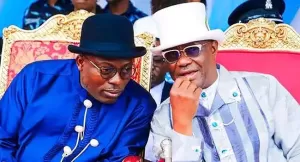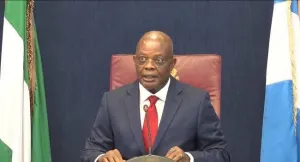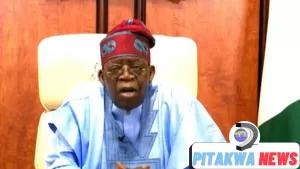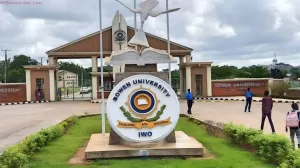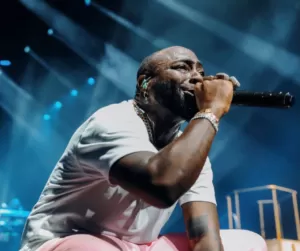Will Another Opposition Governor Follow Sheriff Oborevwori’s Defection to APC?
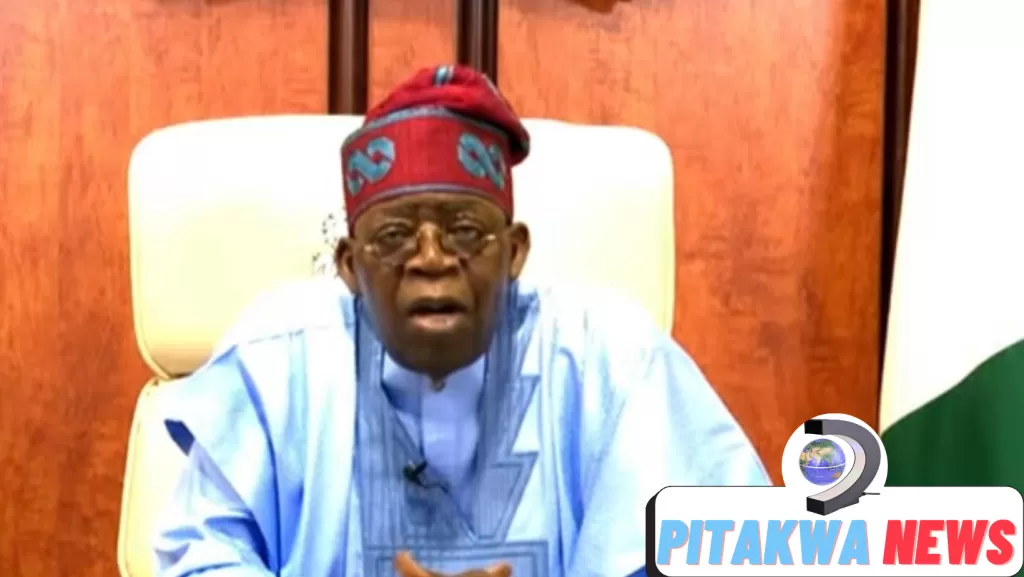
In a seismic shift within Nigeria’s political landscape, Delta State Governor Sheriff Oborevwori made history in April 2025 as the first opposition governor to defect to the All Progressives Congress (APC) under President Bola Ahmed Tinubu’s administration. His move from the Peoples Democratic Party (PDP) to the ruling party sent shockwaves through the opposition, signaling Tinubu’s growing influence and the APC’s aggressive push to consolidate power ahead of the 2027 general elections. As the dust settles, speculation is rife about which opposition governor might be next to cross the carpet. With several PDP and other opposition governors navigating complex regional dynamics, personal ambitions, and political pressures, we analyze the likelihood of defections among eight prominent opposition governors: Peter Mbah (Enugu), Umo Eno (Akwa Ibom), Sim Fubara (Rivers), Caleb Mutfwang (Plateau), Alex Otti (Abia), Abba Kabir Yusuf (Kano), Ahmadu Umaru Fintiri (Adamawa), and Agbu Kefas (Taraba).
The Context of Oborevwori’s Defection
Sheriff Oborevwori’s defection was a masterstroke for the APC, weakening the PDP’s grip in the oil-rich South-South region. Delta State, a key economic and political battleground, now aligns with Tinubu’s administration, potentially unlocking federal patronage and development projects. Oborevwori cited the need for unity and alignment with the federal government’s agenda as his motivation, but political analysts point to deeper factors: the PDP’s internal fractures, Tinubu’s strategic outreach to opposition figures, and the allure of securing political relevance in a second term. The APC, buoyed by this win, is reportedly targeting other opposition governors, particularly in states with strategic or electoral significance.
Defections are not new in Nigerian politics, where loyalty to party ideology often takes a backseat to pragmatism. The Tinubu administration, facing economic challenges and a fragmented opposition, is leveraging federal might to woo governors who may feel vulnerable or ambitious. With the PDP struggling to maintain cohesion and smaller parties like the Labour Party (LP) and New Nigeria People’s Party (NNPP) facing their own challenges, the stage is set for further political realignments. Below, we assess the eight governors and their likelihood of joining the APC.
The Contenders: Who’s Next?
1. Peter Mbah (Enugu, PDP)
Peter Mbah, a business-oriented governor, has focused on transformative economic policies in Enugu, including infrastructure and investment drives. Enugu remains a PDP stronghold in the Southeast, but the party’s national decline and Tinubu’s efforts to penetrate the region could tempt Mbah. His low-key approach to PDP’s internal squabbles suggests pragmatism, and aligning with the APC could secure federal support for his ambitious projects. However, Mbah’s relatively stable position and lack of overt friction with the PDP make an immediate defection unlikely.
Likelihood: Moderate. Mbah might consider defection if the PDP’s fortunes wane further or if Tinubu offers significant incentives for the Southeast.
2. Umo Eno (Akwa Ibom, PDP)
Umo Eno emerges as a frontrunner for defection. The Akwa Ibom governor has openly expressed support for President Tinubu, despite his PDP affiliation, raising suspicions of a potential switch. Akwa Ibom’s oil wealth and strategic importance in the South-South make it a prime target for the APC. Eno’s public alignment with Tinubu, coupled with the APC’s growing influence in the region post-Oborevwori, positions him as a likely candidate. Political observers note that Eno’s defection could deliver a significant blow to the PDP while bolstering Tinubu’s control over oil-producing states.
Likelihood: High. Eno’s pro-Tinubu stance and Akwa Ibom’s political weight make him the most probable next defector.
3. Sim Fubara (Rivers, PDP)
Rivers State Governor Sim Fubara is embroiled in a high-stakes power struggle with his predecessor, Nyesom Wike, now a Tinubu ally and Minister of the Federal Capital Territory. Wike’s influence over Rivers’ PDP structure and his defacto alignment with the APC have pushed Fubara to adopt the obscure Action People’s Party for local elections, signaling a break from the PDP mainstream. The defection of 27 PDP lawmakers to the APC in Rivers further complicates Fubara’s position, with impeachment threats looming. However, joining the APC would likely require reconciliation with Wike, an unlikely prospect given their bitter feud. Fubara’s focus appears to be on consolidating power locally rather than aligning with the APC.
Likelihood: Low. Fubara’s conflict with Wike and his pivot to a new party reduce the chances of an APC defection unless his political survival hinges on it.
4. Caleb Mutfwang (Plateau, PDP)
Caleb Mutfwang faces significant challenges in Plateau, including legal battles over his 2023 election and ethno-religious tensions. The APC’s strong presence in the North-Central region could pressure Mutfwang, especially if he feels isolated within the PDP. However, his progressive stance and local support base make defection a risky move, as Plateau voters may punish him for abandoning the PDP. Without a clear political crisis or overwhelming federal inducement, Mutfwang is likely to stay put.
Likelihood: Low. Mutfwang’s local rooting and the PDP’s resilience in Plateau make defection improbable in the near term.
5. Alex Otti (Abia, Labour Party)
Alex Otti, the only non-PDP governor on this list, represents the Labour Party in Abia. His reformist credentials and focus on governance have earned him goodwill, but the Labour Party’s national struggles post-2023 could leave him vulnerable. Abia’s political landscape, less dominated by PDP or APC, gives Otti room to maneuver independently. Defection to the APC would undermine his outsider image and alienate his base, making it a long shot unless the Labour Party collapses entirely or Tinubu makes a compelling case for Southeast integration.
Likelihood: Very Low. Otti’s independent streak and Labour Party affiliation make defection highly unlikely.
6. Abba Kabir Yusuf (Kano, NNPP)
Abba Kabir Yusuf, governor of Kano under the NNPP, operates under the shadow of his mentor, Rabiu Kwankwaso, a staunch opponent of the APC. Kano’s political weight and the NNPP’s regional dominance make Yusuf’s defection a remote possibility. Kwankwaso’s influence ensures Yusuf’s loyalty, and any move to the APC would likely require a dramatic collapse of the NNPP or an unprecedented deal with Tinubu. Kano’s history of resisting APC dominance further lowers the odds.
Likelihood: Very Low. Yusuf’s ties to Kwankwaso and the NNPP’s strength in Kano make defection nearly impossible.
7. Ahmadu Umaru Fintiri (Adamawa, PDP)
Ahmadu Umaru Fintiri, a PDP heavyweight in the Northeast, has built a strong regional profile and maintains close ties to former Vice President Atiku Abubakar, a PDP stalwart. Fintiri’s vocal criticism of APC policies and his entrenched position in Adamawa make him an unlikely defector. The PDP’s resilience in the Northeast and Fintiri’s leadership within the party further reduce the chances of a switch. Only a catastrophic PDP implosion or a major political realignment could sway him.
Likelihood: Low. Fintiri’s PDP loyalty and regional influence make defection improbable.
8. Agbu Kefas (Taraba, PDP)
Agbu Kefas, a relatively new PDP governor, has kept a lower profile compared to his peers. Taraba’s complex ethnic and religious dynamics could make Kefas open to federal inducements, especially if Tinubu targets the Northeast for APC expansion. However, there’s no strong public signal of disloyalty to the PDP, and Kefas’s focus on local governance suggests he’s not actively seeking a switch. His defection would likely depend on significant political or economic incentives.
Likelihood: Moderate. Kefas’s lower national profile and Taraba’s fluid politics make defection plausible but not imminent.
Other Names in the Mix
While the listed governors are the primary focus, posts on X have highlighted Oyo State Governor Seyi Makinde as a potential defector. Makinde, a prominent PDP figure and member of the G5 group (which leaned toward Tinubu in 2023), has maintained a pragmatic relationship with the APC-led federal government. His influence in the Southwest, a Tinubu stronghold, and his G5 ties make him a dark horse for defection, though his national ambitions within the PDP could keep him anchored.
The Bigger Picture
Nigerian politics is notoriously fluid, driven by opportunism, regional calculations, and power dynamics. Sheriff Oborevwori’s defection has set a precedent, exposing vulnerabilities in the PDP and other opposition parties. The APC’s strategy appears clear: target governors in economically or electorally significant states, particularly in the South-South, Southeast, and Northeast, where the PDP’s grip is weakening. Tinubu’s administration is likely offering a mix of federal patronage, protection from legal or political threats, and promises of re-election support to lure opposition governors.
However, defection is not without risks. Governors risk alienating their local bases, especially in states with strong party loyalties or ethnic sensitivities. The PDP, despite its challenges, remains a formidable force in several regions, and opposition voters may punish defectors at the polls. Moreover, internal APC rivalries could complicate the integration of new members, as seen in past defections.
The Verdict: Umo Eno Leads the Pack
Among the eight governors, Umo Eno of Akwa Ibom stands out as the most likely to follow Oborevwori’s path. His public alignment with Tinubu, Akwa Ibom’s strategic importance, and the APC’s South-South ambitions align perfectly. Peter Mbah and Agbu Kefas are wildcard possibilities, particularly if the PDP’s internal crises deepen or Tinubu ramps up federal inducements. Sim Fubara’s precarious situation in Rivers bears watching, but his defection seems contingent on resolving his feud with Wike. The others—Otti, Yusuf, Fintiri, and Mutfwang—face significant barriers, from party loyalty to regional dynamics.
As Nigeria barrels toward 2027, the political chessboard is in flux. Court rulings, economic pressures, or unexpected crises (like Fubara’s impeachment saga) could reshape the odds overnight. For now, all eyes are on Akwa Ibom’s Umo Eno as the next potential opposition governor to join Tinubu’s APC juggernaut. One thing is certain: in Nigerian politics, expect the unexpected.
Note: Political developments are fluid, and this analysis is based on available information as of April 23, 2025. Readers are encouraged to follow credible news sources for real-time updates.

